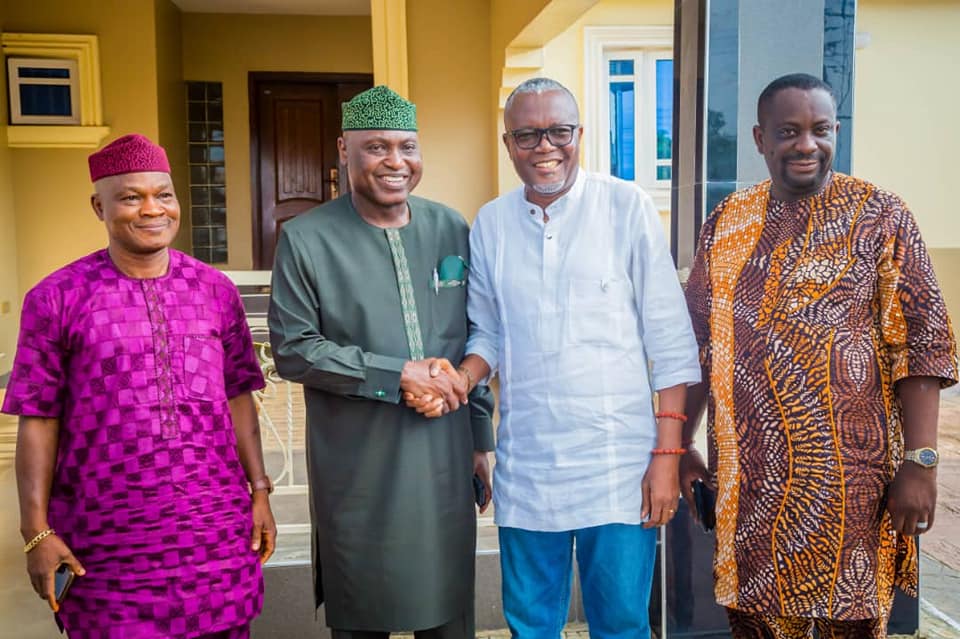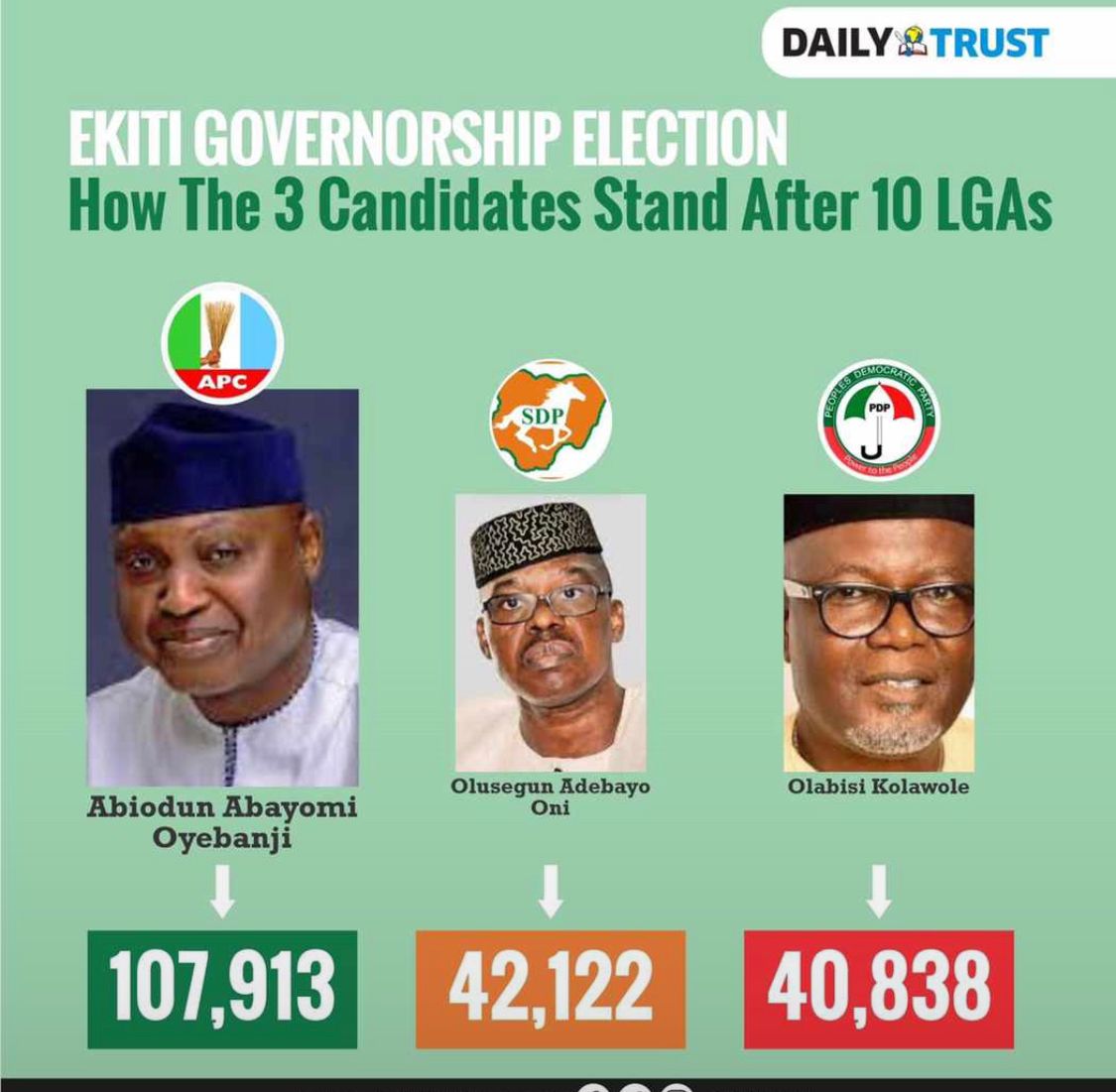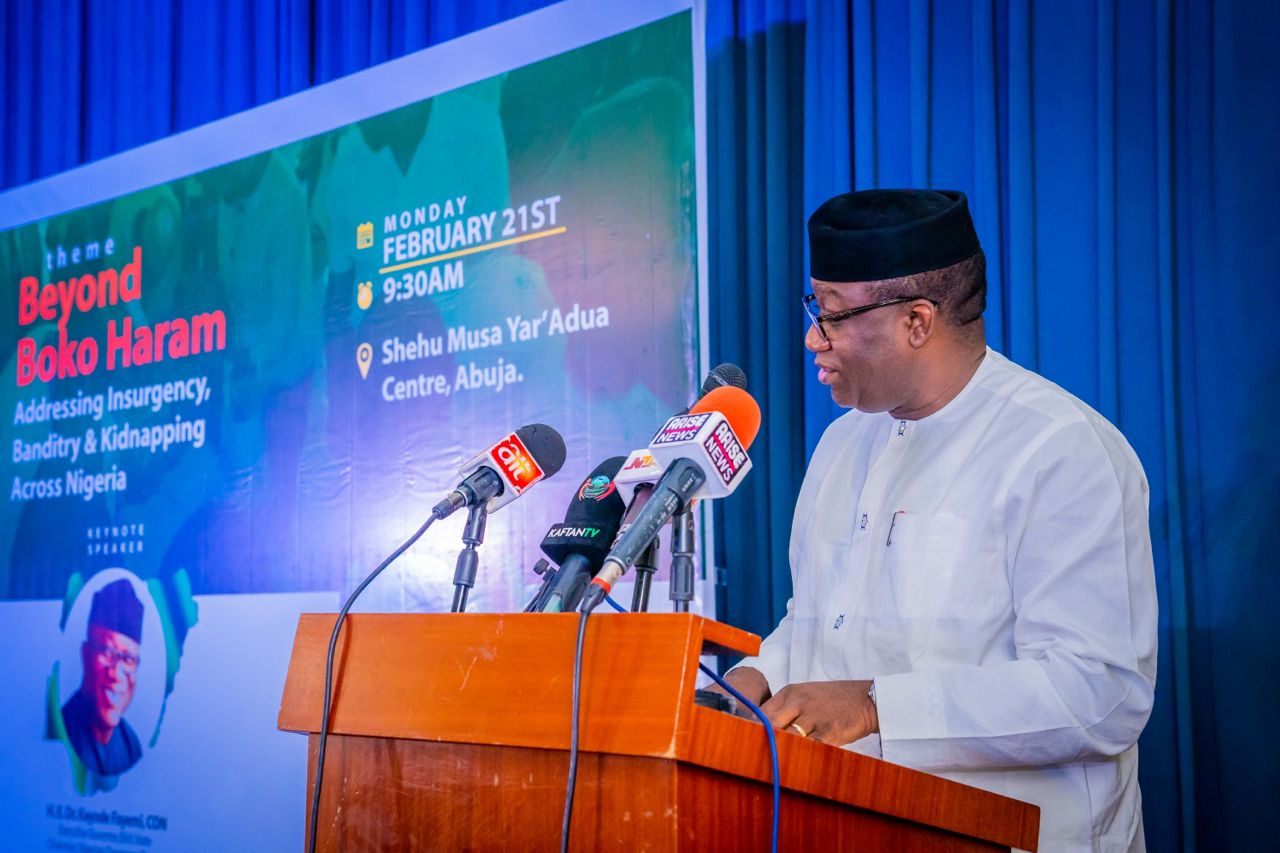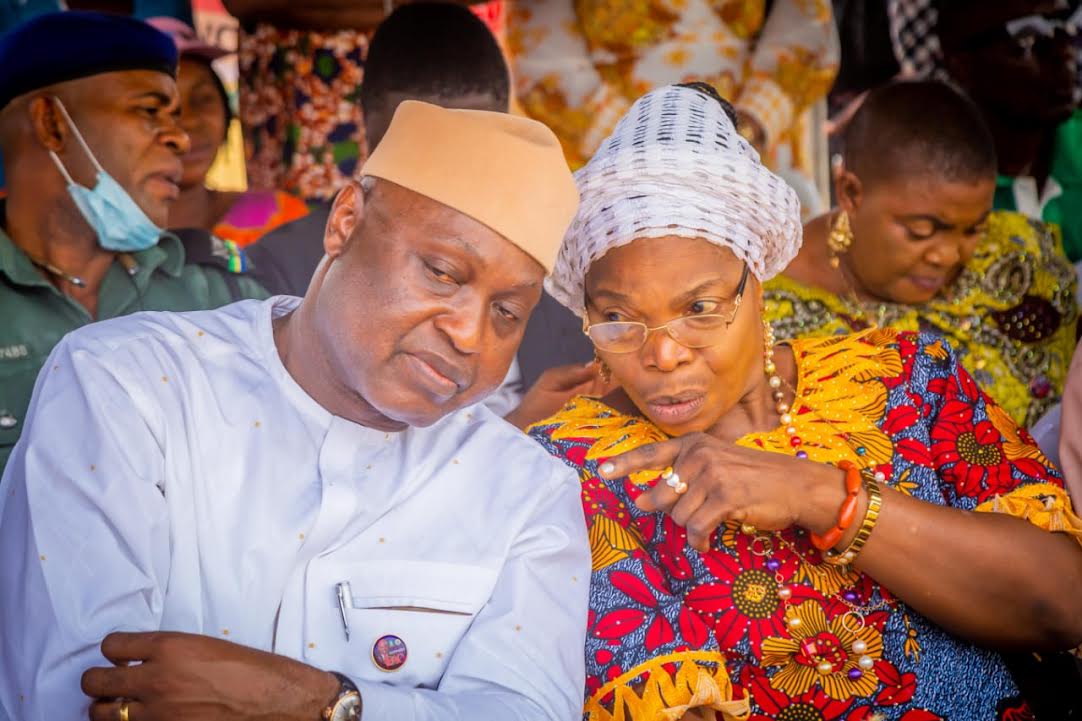Opinions
EKITI KETE’S DREAM AND PROF ELEKA: A NEXUS FOR PROGRESS By Tope Adebayo
The founding fathers in their foresight knew that knowledge is an economy of prosperity and it takes a knowledgeable leader to lead the state. Hence, the motto is a constant reminder of the choice of leaders.
Ekiti State was founded in 1996 with the brand of people with intelligentsia capacity, laced with an enviable knowledge base and a valued culture.
The state which has gone through many processes to really define the integration of the people and the state was intentionally dubbed the fountain of knowledge acknowledging the notion that indeed knowledge resides and can be seen in the daily doings of those from the land.
The founding fathers in their foresight knew that knowledge is an economy of prosperity and it takes a knowledgeable leader to lead the state. Hence, the motto is a constant reminder of the choice of leaders.
The reason people could align with our intellectual capacity and disposition is because there was a release of energy, both intentionally and otherwise that drives people to this conclusion that we had a vision that exhumes, celebrates and exhales knowledge.
The founding fathers did a very great job by making sure our values are seen through the various processes aligning it to every facet of our lives and this translated to a very robust and sane life and the “Ekiti Kete” vision where decisions are made from deep convictions and the convictions make and define the future.
The big question is WHO has the capacity to be the nexus, aligning the vision of the past, present and the vision of the future for the benefit of the land? The Nexus Personality must be an individual with a Knowledge Capacity for Excellence and Quality Delivery.
The success of a company, institution or any human-led organisation is highly dependent on the recruitment process. A shallow recruitment is tantamount to an anticipated failure of performance. Therefore, as the race to electing the next CEO of our great state gets interesting, we cannot allow the bitterness of the past becloud us; neither can we allow the blindness of the present to detail us nor the uncertainty of the future to weaken us in choosing a very credible candidate who can lead the state through a journey of purpose and prosperity for an enviable posterity of inclusive growth and sustainable development.
Ekiti is blessed with great leaders who have the capacity to attain the number one office but one person that stands out in this recruitment search is Professor Kolapo Olusola Eleka.
Professor Olusola Eleka is a tested leader that understands what it takes to move the state from its current level to a progressive pedestal of visible achievements in all sectors of our economy. He is a seasoned human resource manager with sufficient knowledge and intellectual dexterity to lead our people to their desired height.
I would be x-raying not only his credentials but the “T” system that I have silently seen in his process of attaining the number one space in the state.
The “T” system is the model that encompasses progress of people, idea conversion to wealth and people oriented policies needed for the progress of our dear state. The system portrays the balance between the human side and the scientific side of a leader, which is needed for the attainment of our desire as Ekiti Kete, from a retrogressive state to a progressive state, from a Federal Government dependent state to a self sufficient state. Purposeful Leadership can be measured and the T system helps us measure the leadership capacities of a man with the required experience both in the political space and outside of the colony.
The first T that makes Eleka highly suitable and the best for the post of the CEO of our great state is his Training patterns. No organisation grows without having deliberate systems put in place and enhanced for both personal and corporate trainings of those in the organisation.
Professor Eleka has a high taste and preference for training people which was imbedded in the thirst for greatness of our founding fathers. The quest for knowledge and his pursuit can be seen all around him. Any leader that doesn’t take the training of those around him serious won’t matter in this new era and the new normal but will surround himself with charlatans.
Leadership must be deliberately planned to effect positive changes and create platforms for others to emerge as leaders. This is the core aspect of transformational leadership. As a Professor, he is not going to give us peanuts as a way out of poverty but will create an enabling environment for business to thrive with a concurrent training of how to fish. That is creation of opportunities for all and an environment for that opportunity to transform to wealth. As a Professor, he understands the root cause – effect of Poverty in our dear state and he is equipped with the needed knowledge to bring us out of this darkness.
The second T that separates Prof. as he is popularly called is his Transformational leadership style. Most people see leadership from a perspective but leadership is not defined solely by the personality traits of the person but by the manner at which people are influenced by that leadership to achieve set goals.
Transformational leadership is driven by vision and enhanced by objectives that propel a change of direction and an inclusive reconfiguration to progress.
Professor Eleka has become one with the midas touch of leading the Ekiti state vision to a state where we influence those inside to achieving objectives and motivating those outside to learn from us. The Professor’s stance at the various offices he had led and managed had brought in changes that matters with patterns that if sustained create continuous successes – this is the core of transformational leadership; one that can be monitored, managed and multiplied. Prof Kolapo Olusola is a Transformational Leader that will ensure progressive success.
Great leaders that have been able to effect changes have a great display of tact. Tact is the ability to read and approbate right actions at the appropriate time.
He is a man whose demeanour over the years has shown a man that is tactful and strategic. Any CEO who doesn’t know when to apply either the lion or the lamb attitude but behaves like one every time would not matter in the new normal. I will cite an example which is one thing I promise not to do by talking about an incident that we are all familiar with.
Everybody knew that the educational state in Ekiti needed an intervention and Governor Fayose delegated the power to make the sector work and Prof Kolapo Olusola Eleka exhibited a high level of tact by making sure he became part of the process – he taught in classrooms. This action propelled teachers to be more dedicated because who knows the next school the Professor would come to teach.
The adminstration also looked into the welfare of the teachers while others would be giving orders, high level of appropriate actions with the right steps were applied. Tact is a way or strategy of getting things done effectively without causing damage or with little damage on the way to the end. A leader without tact would act unreasonably.
In conclusion, Eleka is a great Talent Manager. Every great leader must have a high level to sniff both budding and established talents. Most politicians raise people for their political motives and leave them to their destruction when they no longer fit their political definitions. How many politicians would tell you to go back to school?
How many politicians would be interested in the next ten years of your life ? I don’t know of many but Professor Eleka is one. Talent development which is maximizing that which was placed in people for the benefit of mankind and any leader that doesn’t take the talent development of people around him serious in this era is not ready to manage a intelligentsia economy like Ekiti.
Beyond the boundaries of political affiliations, Professor Kolapo Olusola Eleka is a name that reverberates loyalty to the Ekiti kete dream, capacity to lead and deliver purposeful leadership and a breathe of the new wine in a new wine bottle. We can’t afford to run the affairs of the states by recruiting a CEO that won’t matter in the new now.
He has all it takes to be the CEO of the modern Ekiti and only enemies of progress and haters of Ekiti would say no to this man.
Professor Eleka is a man that has gone through the process to make the Ekiti dream a reality.
I close with the words of the Great African, Nigeria best and sage, Chief Obafemi Awolowo who despite being clothed with the garment of capacity and with the eyes that see with the spectacles of vision but was never allowed to live it out said and I quote; “Give a man of vision a village he would turn it to a city and give a man with no vision a city he would turn it into a village” and I add “give a man of vision who has the relational prowess and the capacity to see and bring the future into the now; a village, he would turn it into a mega city that would bring unprecedented growth and development to the lives of people in the city”.
The founding Fathers saw the future and name the state, ” Fountain of Knowledge”, which can only be led, managed and maximized by a Knowledgeable, tested and excellent leader in the calibre of Prof Kolapo Olusola Eleka.







